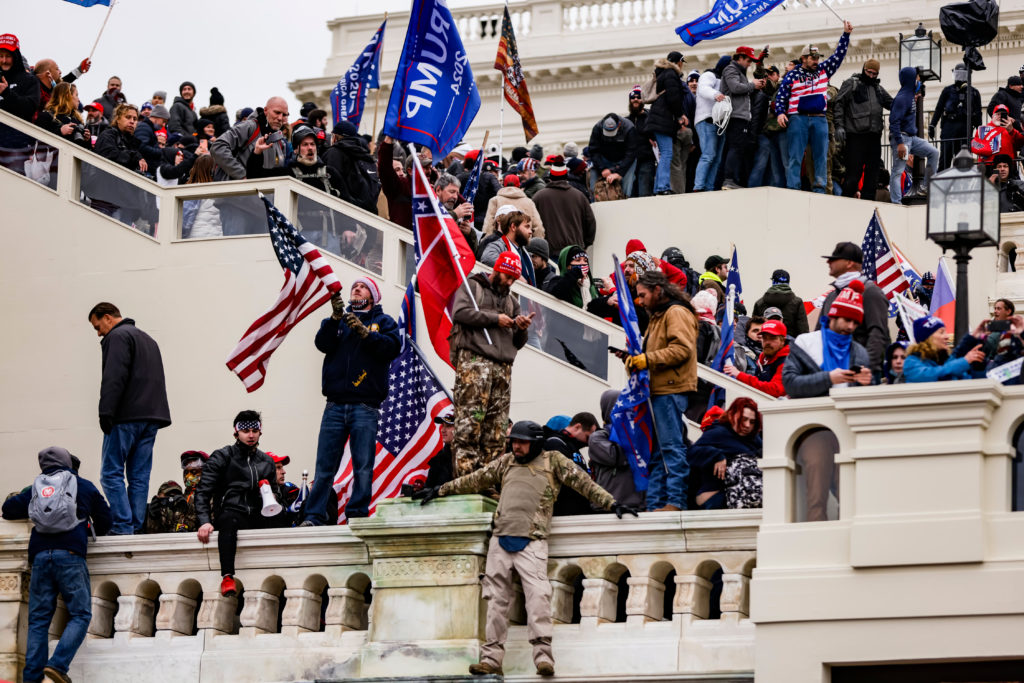On January 6, 2021, Capitol Hill, the home of American democracy, was attacked by a large group of anti-democratic rioters who had been spurred into action by the outgoing President of the United States, Donald Trump. This was a challenging event for the United States, and since the attack many have questioned the strength of America’s democratic and legal structures, and the systemic health of the American polity.
Recently, much has been written about what happened during the attack on the Capitol, but here we present an article from IEP Chairman and Founder, Steve Killelea, writing in the wake of the attack asking not ‘what happened’ but ‘why did it happen’ and more importantly whether something like this, or perhaps something worse, may happen again.
What Happened On Capitol Hill Was Predictable
Countries pass through tipping points where a system shifts from one state to another. In hindsight, the election of President Trump was one such tipping point. Seemingly a significant proportion of the voting population, fed-up with a system they felt didn’t work for them, voted for a renegade – someone they thought might “drain the swamp”. The reality is that the Trump Presidency exaggerated many of the already existing fault lines.

In the decade leading up to the 2016 Presidential election, Positive Peace, which can be used as a measure of societal resilience, had sharply fallen. In fact, the US has had one of the sharpest falls in Positive Peace of any country in the world. The measures that have deteriorated the most are Group Grievances, Quality of Information, Socio-Economic Exclusion and Fractionalised Elites. The latter being a situation where the elites in a society, or those in positions of power, cannot find common ground. Other indicators to deteriorate were Government Effectiveness, Rule of Law, Perceptions of Corruption, and Political Democracy. Although not as pronounced as in the US, the same sad trend can be observed in many Western democracies.
The IMF has recently warned of the potential for a “lost decade”, with a global growth forecast averaging 1.9 percent per annum – the biggest burden falling on the poorest countries. If it eventuates, it will be the worst economic performance in decades, possibly since the end of the Second World War. Over the last ten years, there has been a sharp rise in levels of civil unrest, with riots and demonstrations increasing by 278 percent during this period. These sluggish and challenging conditions will mean higher unemployment, resulting in deteriorating wages, working conditions and most likely an acceleration of the trends mentioned above.
Yet extraordinary times can create extraordinary opportunities, but only if policy makers from all political sides realise that the policies of the last 20 years will not solve the problems of today. Within the field of systems thinking there is a concept of path dependency; all societies move along their own path and cannot be radically changed without endangering the system. The good news is that although deteriorating, Western democracies, including the US, have high levels of Positive Peace. This is also a measure of adaptability.
We need to view our societies as systems, applying the principles of systems thinking. Once a system is moving in a positive direction it is self-reinforcing; it creates a virtuous cycle and Positive Peace provides a lens through which to view a system. Positive Peace is also statistically associated with many of the things we consider important — higher GDP growth, better measures of wellbeing and happiness, better performance on ecological measures and better measures of inclusion.
Positive Peace has the potential to transform some of the world’s most difficult issues, because it shifts the focus away from the negative to the positive, creating the conditions for a society to flourish. Without an understanding of the factors that create and sustain highly functional societies, it will not be possible to develop the programmes, create the policies, or understand the resources required to build resilient and flourishing societies.
Our current approach is clearly not working – it’s time for change.
Steve Killelea is the founder and executive chair of the Institute for Economics and Peace, an independent non-profit think tank dedicated to shifting the world’s focus to peace as a positive, achievable and tangible measure of human wellbeing. He is also the author of ‘Peace in The Age of Chaos: the Best Solution for a Sustainable Future.’ For more information, visit peaceintheageofchaos.org .